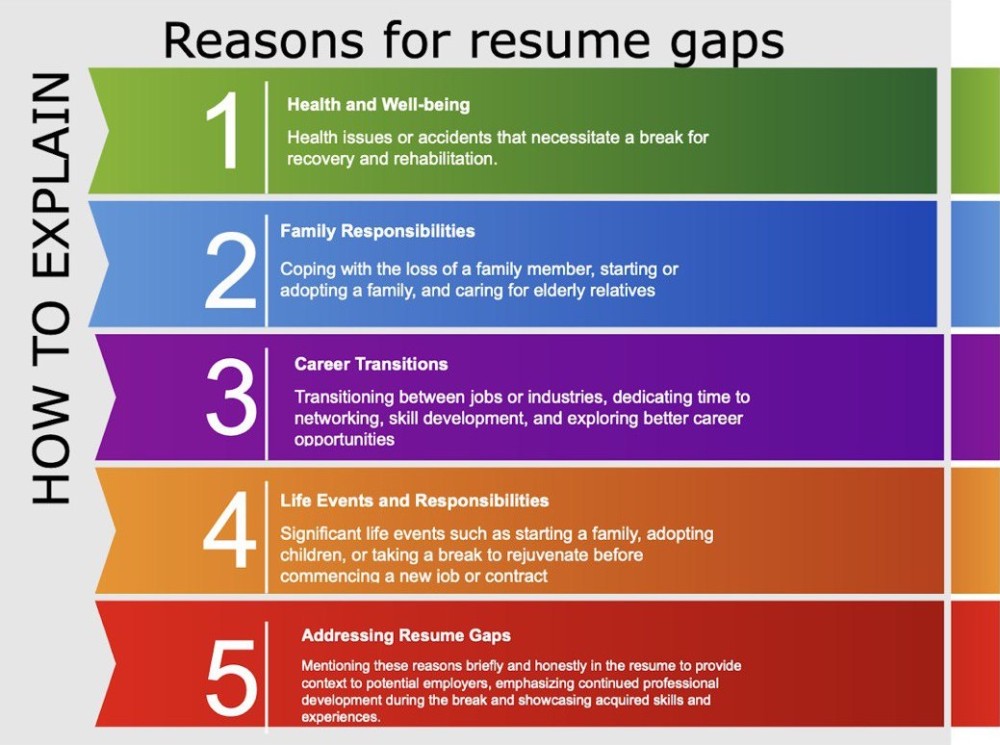If there is a big gap in your resume, you should be ready to explain it to a potential employer. Your goal is to convince the company that you stayed away from work, not because no one wanted to hire you. If the break took no more than half a year, and it was for personal reasons, HR managers might not mind it. However, they will be likely to ask questions to you.
We have prepared the most acceptable and frequently occurring groups of reasons that may well happen in any career path of an IT specialist. They are related to realistic life circumstances and do not speak about your lack of demand or ambitions, and unwillingness to work. It is left to you to choose from the proposed groups, the most appropriate and relevant to your personal circumstances.

When facing personal losses or health challenges, it's acceptable to briefly mention these circumstances as the reason for a career gap.
Similarly, life-changing family events such as pregnancy or adoption can be mentioned briefly, without requiring a detailed explanation. Employers generally understand and respect the need for time off during such important life moments.
In situations involving mental health challenges, a general reference to health-related reasons for a career break is appropriate. Details of the diagnosis are not necessary unless they directly impact professional responsibilities.
Incorporating diverse work experiences, even if not directly relevant to the primary skills and experience, is encouraged. For instance, if a junior mobile developer temporarily worked as a waiter due to family circumstances like a parent's surgery, briefly explaining this diversification can provide context to potential employers.
Internships hold significant value and should be included in the resume, showcasing dedication to the field and a willingness to work and learn, even when not in a paid role.
Volunteer work reflects a sense of social responsibility, and it's beneficial to highlight such experiences. Networking opportunities often arise during volunteering, making it appropriate to seek references and potential job openings through these connections.
During periods of job search, continuous skill enhancement is crucial. Mentioning online courses, relevant readings, consultations provided to colleagues, and other proactive initiatives demonstrate a commitment to ongoing professional development.
Here are additional instructions to provide a comprehensive understanding of addressing gaps in a CV:
Be Brief and Clear:
📌When explaining gaps, keep your explanations concise and to the point. Clearly state the reason without delving into unnecessary details.
Focus on Positive Outcomes:
📌Emphasize what you learned or achieved during the gap, showcasing any skills gained, courses completed, or volunteer work undertaken.
Tailor Explanations:
📌Customize your responses based on the specific gap and the position you're applying for, ensuring relevance and alignment with the job requirements.
Practice Responses:
📌Practice explaining your gaps in a confident and composed manner. This preparation will help you during interviews or when providing written explanations.
Seek Professional Guidance:
📌If unsure about how to explain a particular gap, consider seeking advice from a career counselor or a professional resume writer to craft an effective and honest explanation.
Good luck with the interview!


